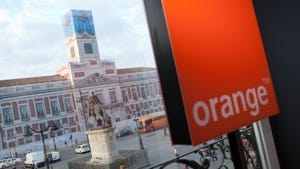BT Mobile joins the 5G frayBT Mobile joins the 5G fray
BT has become the latest mobile player to enter the race for 5G subscriptions, though it does beg the question how economically attractive it is to own two rival services.
October 11, 2019

BT has become the latest mobile player to enter the race for 5G subscriptions, though it does beg the question how economically attractive it is to own two rival services.
Launching in 20 cities and towns around the country, BT Plus and BT Business customers will be the first to be offered upgrades to the service. Convergence is a key pillar of the BT turnaround strategy, and the introduction of 5G to the BT brand does build in more relevance moving forward.
“Our 5G service provides customers with a faster and more reliable connection in high demand, crowded areas across the UK at peak times,” said BT Consumer CEO Marc Allera.
“When combined with the best fibre, the UK’s fastest 4G network and biggest wi-fi network, BT is helping consumers and businesses stay connected wherever they are and whatever they need to do.”
Despite the fact BT is in the most powerful position in the UK when it comes to connectivity assets, it hasn’t really been able to cash-in on the convergence craze just yet. The issue which has not been addressed to date, and now we suspect it won’t be in the near future, is rival brands, fighting for the same consumer, to contribute profits to the same bank account.
Customer acquisition in a mature and saturated market is incredibly expensive. The most successful strategies are generally those geared towards price, though this does create the dreaded ‘race to the bottom’. Perhaps one of the reasons convergence has not hit the high notes at BT is the multi-brand strategy which the team is persisting with.
EE has an excellent mobile brand, but it found wanting in broadband. BT leads the market in broadband but lacks clout in mobile. If either of these brands want to create value through convergence, they will have to lure customers onto a secondary-service which does not have the reputation of rivals. This is an expensive means of customer acquisition, both in terms of advertising and lower ARPUs.
These brands are not only fighting to lure the same customers away from the same rivals, they are also attempting to steal subscriptions from each other. It doesn’t seem like the most logical plan.
At some point, the brands will have to merge into one. Convergence doesn’t make the most sense when you trying to sell two different brands in the same bundle. We suspect the BT brand will win out, especially when you see the expensive brand advertising campaign which has been launched with the England, Wales, Scotland and Northern Ireland football associations.
That said, it is important for the BT brand to enter the 5G fight if it does want to remain relevant in the mobile world moving forward.
Looking at the deal, BT consumer customers can choose from 6 GB, 30 GB, or 60 GB 5G mobile plans, and can also gain a £10 monthly discount if the plan is purchased alongside a broadband package. This might gain some traction, though there is still plenty of opportunity for pricing strategies to shift over the coming months.
Although many of those with 5G ambitions have unveiled their pricing strategies, there is still plenty of volatility left to realise. Pricing seems to expensive right now, though the telcos will be stubborn while the early adopters are purchasing. These are consumer who are less likely to be deterred by price. As soon as the mass market starts to get interested, this is where we can envision the pricing war genuinely kicking off.
About the Author
You May Also Like










.png?width=300&auto=webp&quality=80&disable=upscale)


_1.jpg?width=300&auto=webp&quality=80&disable=upscale)